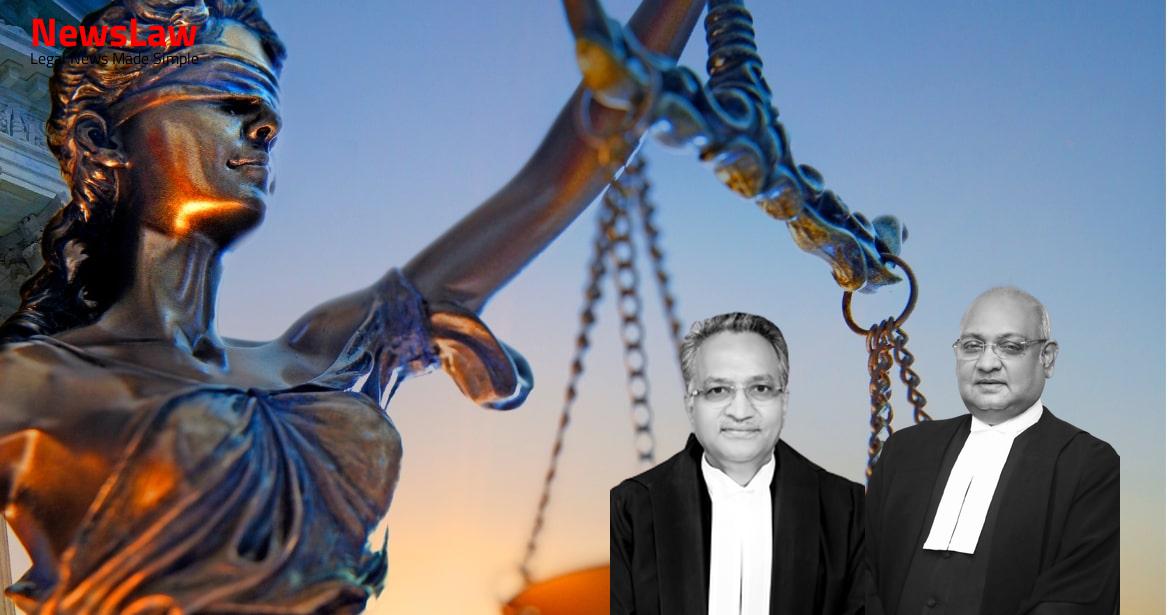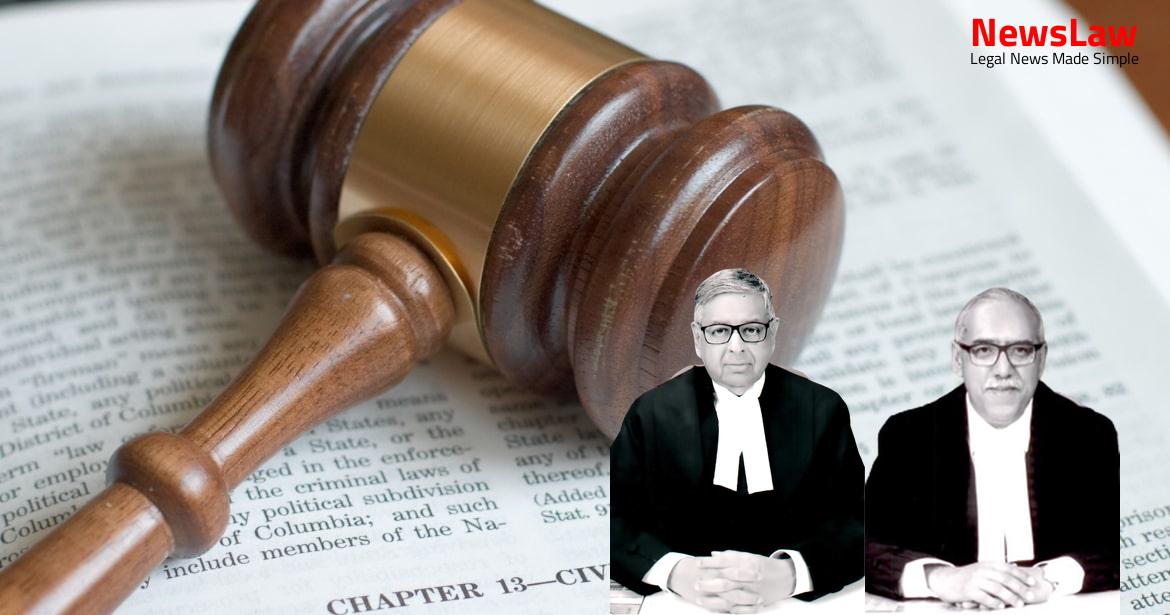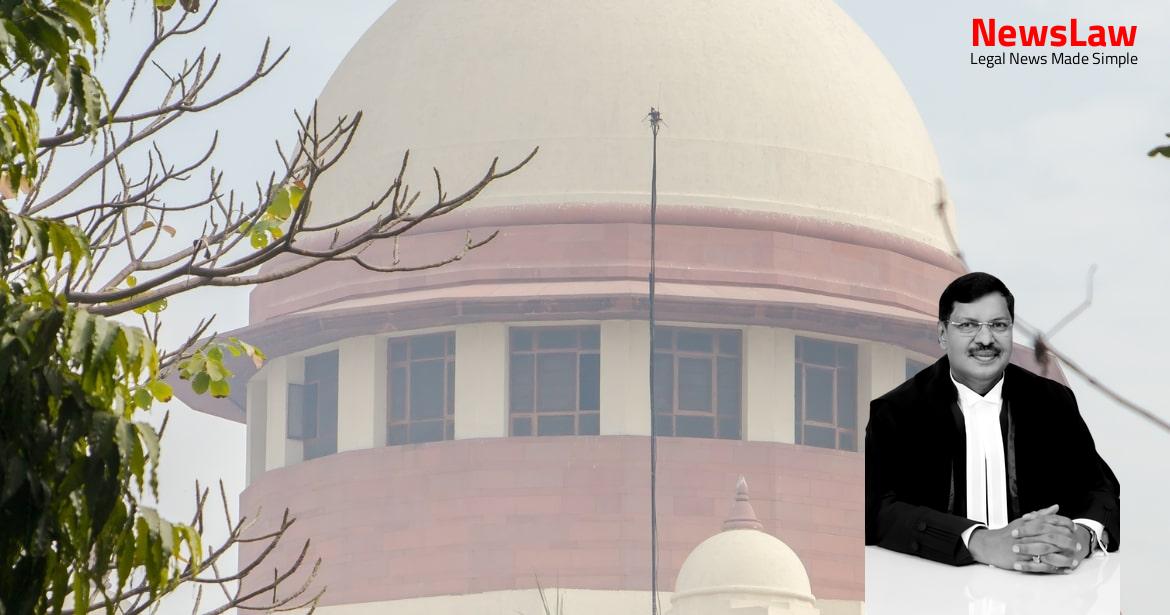In a recent case, the Court provided a comprehensive analysis of the constitutional validity of taxation laws, emphasizing the importance of legislative power. The decision highlights key principles regarding the examination of the legislative intent and the scope of judicial review in such matters. The Court’s thorough analysis sheds light on the intricate balance between legislative and judicial functions in interpreting and upholding the law.
Analysis
- The Court emphasized on the principles to be considered while examining the constitutional validity of taxation laws.
- There is a presumption in favor of the constitutionality of laws enacted by Parliament or State Legislatures.
- An enactment cannot be struck down solely for being arbitrary or unreasonable; a constitutional infirmity must be found.
- The legislature has the authority to decide when, what, and how to legislate.
- The insertion of clause (f) in Section 43B of the Income Tax Act, 1961 was to prevent abuse of existing laws and protect employee interests.
- The legislature can make laws with retrospective effect to render judicial decisions ineffective.
- The Court upheld the legislative power of Parliament in enacting clause (f) and examined its constitutionality based on specific grounds.
- The High Court at Calcutta held clause (f) as arbitrary and violative of Article 14 of the Constitution for various reasons.
- The objects and reasons behind an enactment signify the legislative intention and assist in understanding the law.
- The Court highlighted the significance of statutory provisions and their interpretation based on legislative intent.
- The Court reiterated the principles of judicial review and separation of powers in the context of legislative and judicial functions.
- Challenges to the constitutional validity of clause (f) were accepted based on non-disclosure of objects and reasons, inconsistency with other provisions, and perceived intent to nullify a previous court decision.
- The Court upholds the validity of clause (f) in Section 43B of the 1961 Act.
- Judicial review of a provision under Article 13 of the Constitution is based on two steps: examining the legislative competence and ensuring the provision does not violate Part III of the Constitution.
- The insertion of clause (f) does not extinguish the autonomy of the assessee to follow the mercantile system of accounting.
- Clause (f) regulates the timing of claiming deductions for liabilities accrued in the previous year, ensuring deduction can only be availed upon actual payment.
- The legislative power to create new liabilities, exempt existing liabilities, and regulate deductions is upheld.
- The absence of objects and reasons for clause (f) does not invalidate the provision, as long as there is no ambiguity or violation of constitutional rights.
- The Court highlights the legislative aim behind Section 43B to protect revenue, employee welfare, and prevent tax evasion.
- Section 145 of the Income Tax Act prescribes the method of accounting to be followed by the assessee for computing income.
- Income can be computed using either the cash or mercantile system of accounting regularly employed by the assessee.
- The Central Government may notify accounting standards to be followed by certain classes of assessees or incomes.
- If the Assessing Officer is not satisfied with the accounts or the accounting method followed by the assessee, an assessment can be made as per Section 144.
- Section 43B of the Income Tax Act specifies that certain deductions are allowed only when the sum is actually paid by the assessee, regardless of the year in which the liability was incurred.
- Various scenarios of deductions are outlined in Section 43B, including sums payable as taxes, contributions to funds for employees, interest on loans, etc.
- Exceptions to the requirement of actual payment are provided based on the due date for furnishing the return of income.
- Explanations are given to clarify that deductions allowed in one year for a specific sum cannot be claimed again in the year of actual payment.
- The mercantile system of accounting is explained, where income assessment is based on the accrual of liability rather than actual expenditure.
- The legitimacy of enacting clause (f) is without doubt.
- The respondents failed to prove the non-existence of competence or any constitutional infirmity in clause (f).
- Based on the legal position explained, the appeal should be allowed.
Also Read: Land Acquisition Challenges for Integrated Infrastructure Project
Decision
- The impugned judgement of the Division Bench of the High Court has been reversed.
- Clause (f) in Section 43B of the 1961 Act is deemed constitutionally valid and operative.
- No costs are ordered.
- Any pending interlocutory applications shall be disposed of.
Also Read: Analysis of Legal Issues in Property Dispute Case
Case Title: UNION OF INDIA Vs. M/S EXIDE INDUSTRIES LTD. (2020 INSC 350)
Case Number: C.A. No.-003545-003545 / 2009



